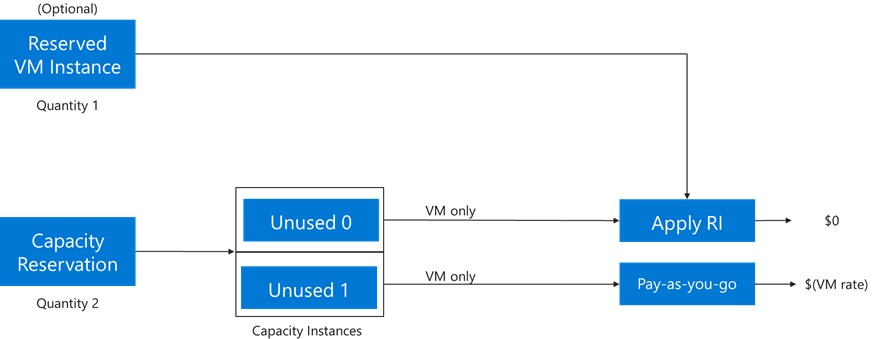Recently, Microsoft announced the preview of on-demand capacity reservations for Azure Virtual Machines (VMs). With this new feature for VMs, customers can reserve more compute capacity.
Earlier, customers could only get a service level agreement (SLA) for Azure Virtual Machines capacity when deploying actual running or stopped VMs. This operation could lead to management overhead to keep all VMs up-to-date and impedes the use of compute power for other business purposes. Customers can now deploy and manage the compute capacity required to run Azure VMs separately from the VMs themselves with the on-demand capacity reservation feature.
In an Azure Virtual Machines blog post, Bill DeForeest, principal program manager at Microsoft, explains how the on-demand capacity reservation feature works:
An on-demand capacity reservation will operate as a deployable object: specify a VM size, location, and quantity using the Compute Resource Provider. Upon successful completion of a reservation, customers can then assign VMs to the reserved capacity. The reservation is on-demand because there is no term commitment required. You can delete on-demand capacity reservations whenever they are no longer needed.
In addition, a blog post by Alan Kinane, Azure technical lead at MicroWarehouse, outlines a significant benefit of the feature:
I have often wondered what would happen if an entire Azure region went down and there was a scramble for capacity in the paired region when customers invoke their DR plans. Will there be enough capacity for everyone? This is where on-demand capacity reservations come in. Once this feature goes into general availability you can expect a service SLA (yet to be published) which will outline just what Microsoft is prepared to guarantee in terms of resource availability.
Another benefit for customers is the aility to claim capacity ahead of time when extra demand is expected.
Since no commitment is required, Microsoft places a pay-as-you model in place for reservations – which means the reservation price depends on the underlying cost of the VM size, location, and quantity of the reservation. Furthermore, note that according to the same blog post, any discounts will be applied to customers who have purchased reserved instance (RI) VMs.

Source: https://docs.microsoft.com/en-us/azure/virtual-machines/capacity-reservation-overview
The on-demand capacity reservation preview is currently available for general-purpose Azure VM families, Burstable (B), Av2, Dv2, and later generations, including Dav4, memory-optimized Ev3, and later generations, including Eav4, and Compute-optimized (Fv1 and newer). Furthermore, the company intends to support additional VM series soon.